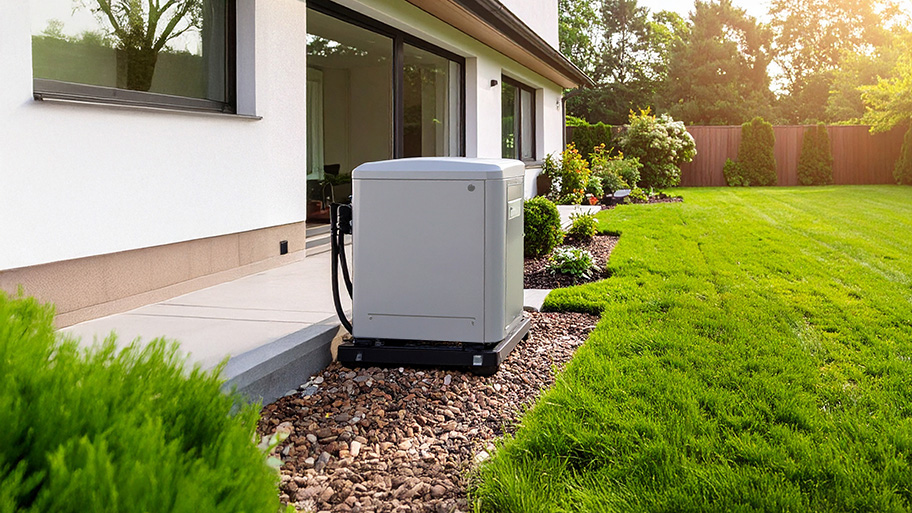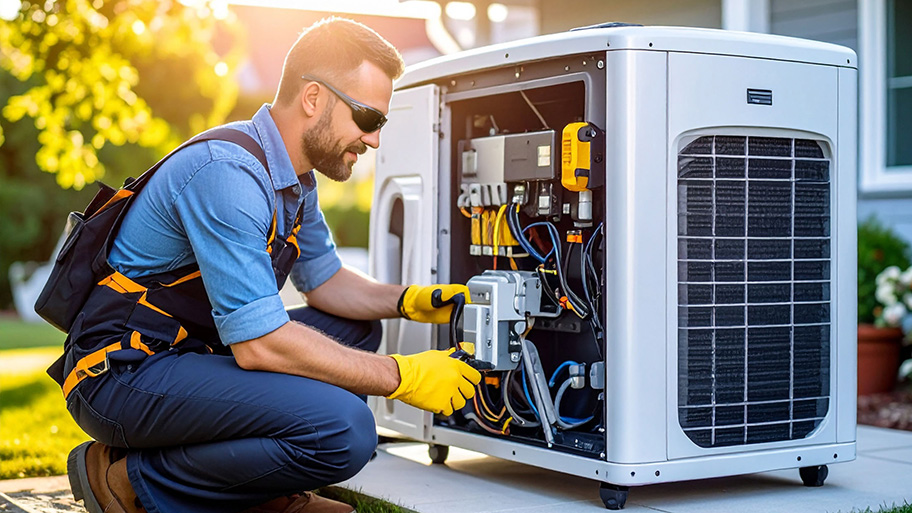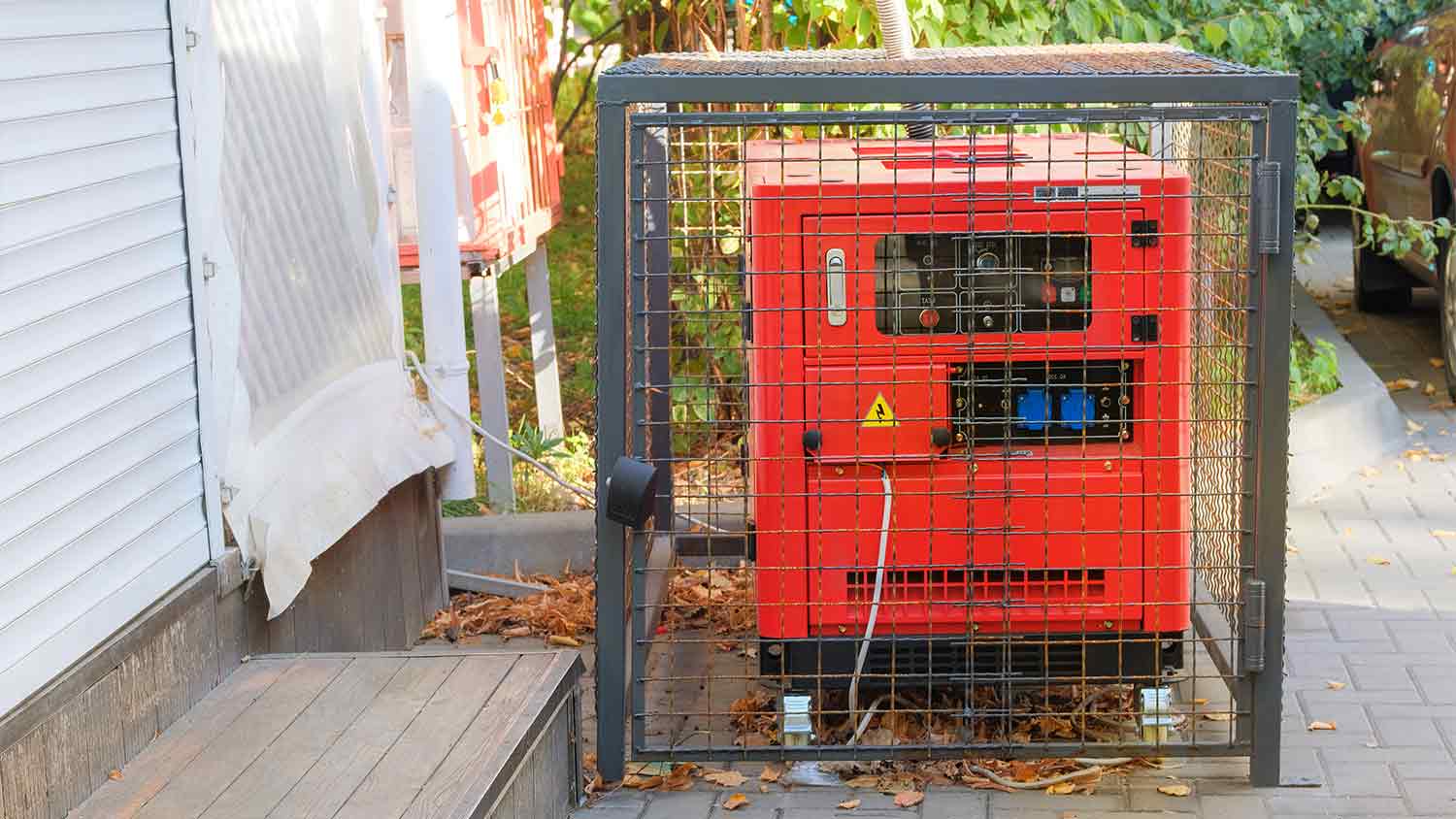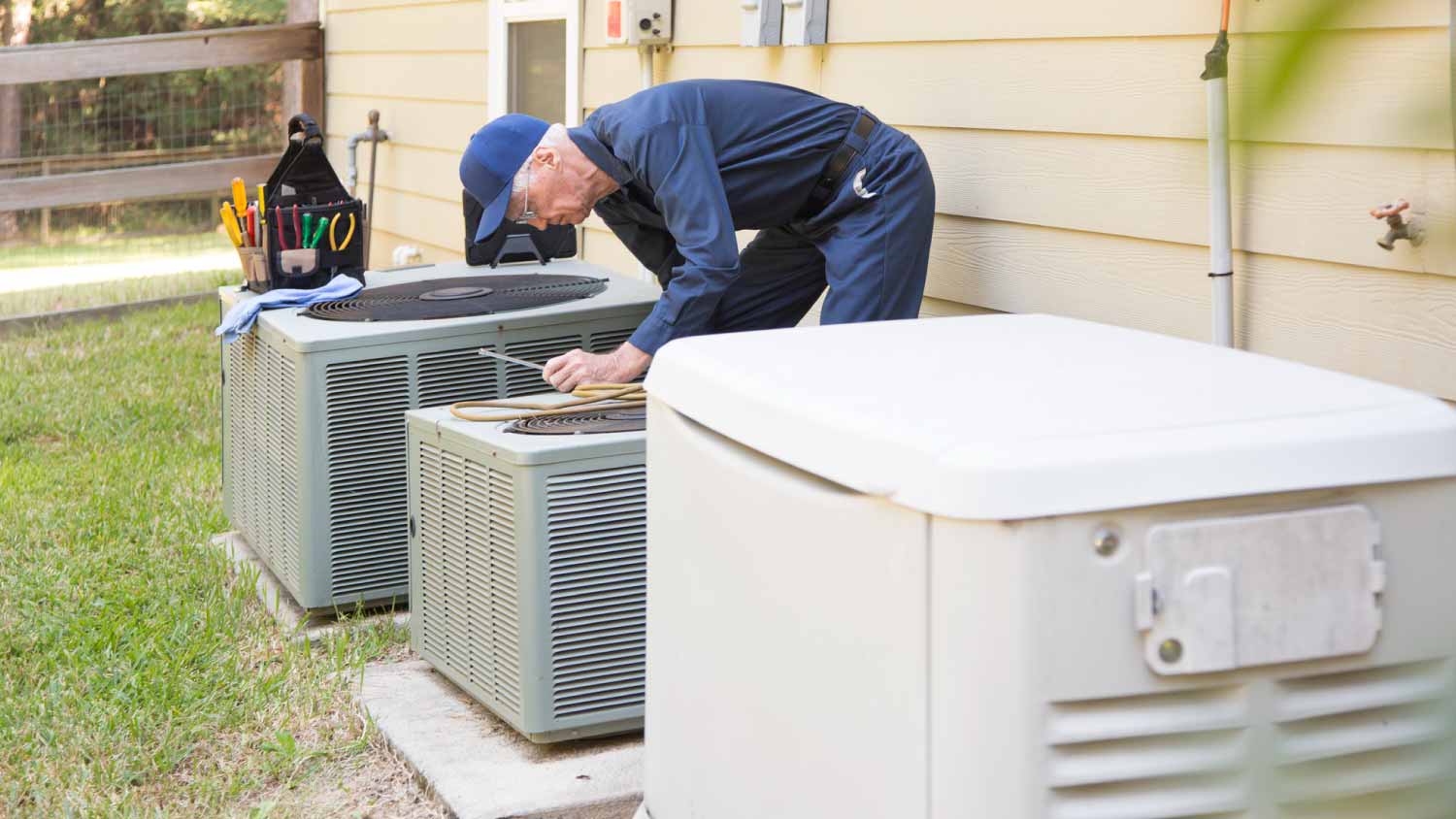
The average cost of a whole-house generator falls between $5,000 and $25,000. Keep reading to learn how much you can expect to spend.
Learn whether turbines are a practical energy alternative for your home


Analyze wind speeds around your property compared to the turbine's rated wind speed to determine whether it’s a suitable energy solution.
Position turbines away from large structures, trees, and obstacles to maximize wind collection efficiency.
Choose between standalone systems for remote locations or grid-connected systems for energy independence with the ability to contribute to the grid.
As the hunt for renewable energy sources becomes more important than ever, even the small-scale practices individuals can make a difference. Wind generators for homes offer a promising solution for homeowners looking to generate clean, renewable energy and significantly reduce their carbon footprint. However, there are many important factors to consider, and they won’t be efficient in every setting. Here’s what you need to know about installing home wind turbines.
Wind turbines are devices that transform the kinetic energy of wind into usable electricity. When the wind blows, it sets the turbine’s blades into motion, which drives a rotor connected to a small generator within the system. As this generator operates, it generates electricity.
To integrate harvested energy into a home's electrical system, a wind turbine is linked to an inverter, which converts the turbine’s direct current (DC) power into alternating current (AC) power suitable for household use. Certain wind turbine models even feature a solar battery component, allowing them to store surplus wind energy for consumption during windless periods. In some instances, homeowners can acquire a separate solar battery to enhance energy storage capabilities in conjunction with their home turbine.
Wind energy is a clean, renewable resource that doesn’t produce harmful emissions, making it an environmentally friendly choice for powering homes. Plus, by generating your own electricity, you can reduce your reliance on traditional energy sources and gain energy independence. Along with that, wind generators can reduce the cost of the average electrical bill and contribute to a more sustainable and eco-conscious lifestyle.

While domestic wind turbines are notably smaller and less powerful than their commercial counterparts, they offer a practical means of producing clean energy in a small-scale setting such as a home, camper, or RV. However, it’s important to consider whether the property in question and the surrounding environmental conditions can accommodate a wind turbine. Consider these main factors:
Before installing wind generators for homes, it’s essential to analyze the amount of wind around your property. Check out your area’s average wind speeds and compare them to the generator’s rated wind speed to find the best fit. If your area doesn’t receive sufficient wind, it’s a good idea to consider other green energy alternatives, such as solar panels.
Large, open spaces like a big yard or field are ideal for standalone turbines. If you’re considering a rooftop turbine, ensure that trees don’t block the spot and can hold the turbine securely. Also, make sure your roof isn’t too steeply sloped, and can handle the weight of the turbine.
Structures, trees, natural rock formations, and other large objects can greatly impact a wind turbine’s ability to catch wind. To ensure optimal functionality of your turbine, place the system at least three times the height of anything sizable around it, and give it about 500 feet of space from those obstacles. Consult your wind turbine installer about its placement and surrounding obstacles to ensure it’s a safe spot to keep it.
Always check local zoning regulations and obtain necessary permits before installing a wind generator. Some areas have height restrictions and setback requirements. A qualified local home generator installation professional can help find the best solution based on your property’s setup.
While residential turbines aren’t as hazardous as big wind farms and commercial turbines, they can still potentially pose a threat to local birds and wildlife. Home wind turbines can harm or even kill birds, bats, and insects, and they might also disrupt the migration patterns of these creatures. While it's hard to completely prevent this impact, there are some steps you can take. For instance, you could paint your turbine in a dark, contrasting color or choose a location that's less likely to attract birds and bats.
Another important consideration when choosing wind generators for homes is whether to install a standalone or grid-connected system. Standalone or off-grid wind energy systems operate independently from the utility grid. These systems are ideal for remote locations where connecting to the grid may be expensive or impractical. They’re also a great choice for individuals seeking energy independence and reduced reliance on utility companies.
Grid-connected home wind generators, also known as grid-tied systems, allow you to use the generator’s energy while remaining connected to the grid. Any excess energy generated by the wind turbine can be fed back into the grid, earning homeowners credits or compensation from their utility company. If the turbine doesn’t produce enough energy, power can be drawn from the grid as needed.
From average costs to expert advice, get all the answers you need to get your job done.

The average cost of a whole-house generator falls between $5,000 and $25,000. Keep reading to learn how much you can expect to spend.

Keeping on top of generator maintenance and repairs gives you extra peace of mind as a homeowner. Find out how much regular generator maintenance costs.

The cost to install a generator transfer switch depends on several factors. Our guide will help you understand all of the costs.

Can a generator get wet? Protective covers are necessary for using a portable generator in the rain, and they shouldn’t be used in extreme weather.

Diesel remains a popular fuel option for a variety of home generators, but you will need to plan your maintenance carefully. Here’s how it works.

Natural gas generators can tap into existing gas lines so they never run out of fuel. Here’s how they work and how they’re used.